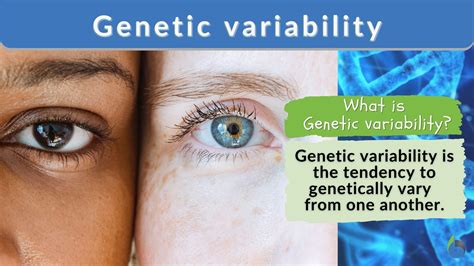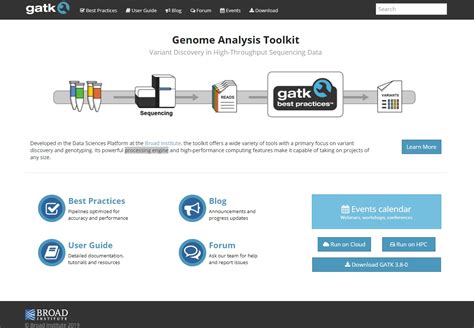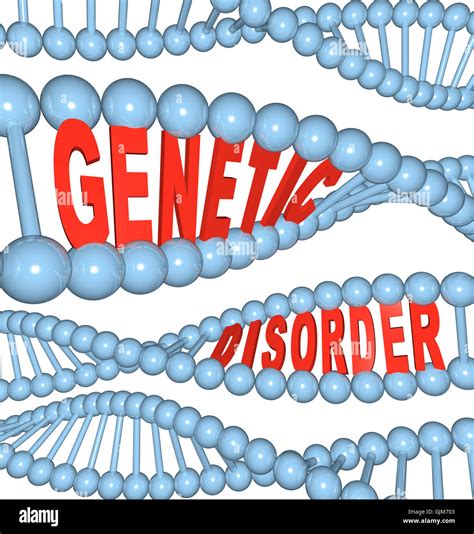Breaking News


Popular News


Explore the impact of genetics and genomics, tools for analysis, genetic diseases, and ethical implications in our blog post on unlocking the mysteries of DNA.Genetics and genomics are fascinating fields that have revolutionized our understanding of DNA and its impact on human health and disease. In this blog post, we will delve into the world of genetics and genomics, exploring the intricate workings of our genetic code and the incredible potential for unlocking the mysteries it holds.
Our first subheading, “Understanding Genetics and Genomics,” will lay the foundation for our exploration, providing a comprehensive overview of the fundamental concepts and principles behind these fields. We will then move on to discuss “The Impact of Genetic Variation,” delving into the implications of genetic diversity and the influence it has on our health and susceptibility to various diseases.
Next, we will turn our attention to “Tools for Genomic Analysis,” examining the cutting-edge technologies and techniques that have enabled breakthroughs in genomic research. We will then shift our focus to “Exploring Genetic Diseases and Disorders,” shedding light on the complexities of genetic conditions and the ongoing efforts to advance diagnosis and treatment.
Finally, we will address the “Ethical Implications of Genetic Research,” considering the ethical dilemmas and societal considerations that arise from the rapid advancements in genetics and genomics. Join us as we embark on this enlightening journey into the world of genetics and genomics, where we will uncover the profound impact of these fields on our understanding of DNA and its role in shaping our lives.
Contents

Genetics and genomics are two closely related fields that focus on the study of genes and their functions. Genetics is the branch of biology that deals with the study of genes, genetic variation, and heredity in organisms. It is the study of inheritance and the traits that are passed down from one generation to the next. On the other hand, genomics is the study of the entire genome of an organism, including the interactions of those genes with each other and with the organism’s environment. In simple terms, genetics deals with the study of individual genes, while genomics looks at all of an organism’s genes as a whole.
Understanding genetics and genomics is crucial in many aspects of modern life, from medicine and agriculture to anthropology and ecology. The information gained from these fields can help researchers and healthcare professionals gain a deeper understanding of the mechanisms underlying diseases and disorders, leading to more effective treatments and preventative measures. In agriculture, genetics and genomics are used to improve crop yields, enhance livestock health, and develop more resilient plant varieties that can better withstand environmental stressors.
Advances in tools for genomic analysis have revolutionized the study of genetics and genomics. Through the use of techniques such as DNA sequencing, genome mapping, and gene editing, researchers are able to unravel the complexities of the genetic code and its role in the development and function of living organisms. These tools have also opened up new possibilities for personalized medicine, as individuals can now have their genomes sequenced to identify potential genetic risks and tailor treatment plans to their specific genetic makeup.
| Understanding Genetics | Understanding Genomics |
|---|---|
| Focuses on the study of individual genes and heredity | Looks at the interaction of all genes within an organism |
| Key in the development of gene therapies | Important in understanding complex diseases and traits |
As with any field of study, understanding genetics and genomics also comes with ethical implications. The ability to manipulate the genetic code raises questions about the potential for misuse and the moral boundaries of genetic research. It is important for researchers, policymakers, and society as a whole to consider the ethical implications of genetic research and ensure that the benefits of these advancements are balanced with a thoughtful consideration of the potential risks and consequences.

Genetic variation plays a crucial role in the diversity of life on Earth. It refers to the differences in DNA sequences between individuals within a population. These variations can impact many aspects of an organism, including its physical appearance, behavior, and susceptibility to diseases.
The impact of genetic variation can be seen in the wide range of physical traits and characteristics that exist within a single species. For example, human populations exhibit variations in skin color, eye shape, and height, which are determined by different combinations of genes. In addition to physical traits, genetic variation also influences an individual’s susceptibility to certain diseases. Some individuals may have genes that increase their risk of developing conditions such as diabetes or cancer, while others may have genetic protection against these diseases.
Furthermore, genetic variation is crucial in the process of evolution. It provides the raw material for natural selection to work on, leading to the development of new species and the adaptation of existing ones to changing environments.
In conclusion, the impact of genetic variation is evident in the diversity of life, the susceptibility to diseases, and the process of evolution. Understanding and studying genetic variation is essential for uncovering the mysteries of DNA and its role in shaping the living world.

Genomic analysis has become an essential tool in the field of genetics and genomics, allowing researchers to study the entire DNA sequence of an organism. There are several tools that are commonly used for genomic analysis, each with its own unique advantages and limitations.
One of the most widely used tools for genomic analysis is next-generation sequencing (NGS), which allows researchers to rapidly sequence large amounts of DNA at a relatively low cost. NGS has revolutionized the field of genomics, making it possible to study the entire genome of an organism in a matter of days, rather than the years it would have taken with older sequencing technologies. However, NGS does have some limitations, such as the potential for errors in the sequencing data and the difficulty of analyzing large amounts of data.
Another important tool for genomic analysis is microarray technology, which allows researchers to study the expression of thousands of genes at once. This technology has been instrumental in understanding the underlying genetic mechanisms of various diseases and disorders, as well as in identifying potential drug targets. However, microarray technology is also limited by its inability to sequence entire genomes and by the fact that it relies on pre-existing knowledge of the genes being studied.
Finally, bioinformatics tools play a crucial role in genomic analysis, allowing researchers to analyze and interpret the vast amounts of data generated by NGS and other sequencing technologies. These tools use advanced algorithms to identify patterns and relationships within the genomic data, helping researchers to understand the function of specific genes, the genetic basis of diseases, and much more.

Genetic diseases and disorders are caused by abnormalities in an individual’s genetic makeup. These conditions can be inherited from one or both parents, or they can be the result of new mutations in the individual’s genes. These disorders can affect any part of the body and can vary greatly in their severity, from mild to life-threatening. Understanding the genetic basis of these diseases is crucial for the development of effective treatments and preventive measures.
One tool for exploring genetic diseases is genomic analysis, which allows scientists to study an individual’s entire genetic code. By comparing the genetic sequences of affected individuals with those of healthy individuals, researchers can identify the specific genetic variations that are associated with disease. This information can then be used to develop targeted therapies and diagnostic tests.
In recent years, there has been a growing focus on the ethical implications of genetic research and its applications. As genetic testing becomes more widely available, questions have arisen about issues such as privacy, confidentiality, and the potential for discrimination based on genetic information. These concerns must be carefully considered and addressed to ensure that genetic research is conducted in a responsible and ethical manner.
| Common Genetic Diseases and Disorders | Description |
|---|---|
| Sickle Cell Anemia | A genetic disorder that affects the hemoglobin in red blood cells, leading to chronic anemia and other health problems. |
| Cystic Fibrosis | A hereditary disease that causes thick, sticky mucus to build up in the lungs and digestive system, leading to respiratory and digestive problems. |
| Huntington’s Disease | A progressive brain disorder that causes uncontrolled movements, emotional problems, and loss of cognitive abilities. |
| Down Syndrome | A genetic condition that results in intellectual disabilities and developmental delays, as well as characteristic physical features. |
By understanding genetics and genomics and using advanced tools for analysis, researchers and healthcare professionals are making great strides in the diagnosis, treatment, and prevention of genetic diseases and disorders. This knowledge has the potential to improve the lives of countless individuals and families affected by these conditions.

Genetic research has made incredible strides in recent years, allowing scientists to uncover the mysteries of DNA and how it influences our health and well-being. However, with these advancements come a host of ethical considerations that must be carefully navigated. One of the primary concerns is the potential for misuse of genetic information. As more and more data is collected and analyzed, there is a risk that this information could be used for discriminatory purposes, such as denying individuals access to healthcare or employment based on their genetic profile.
Another ethical consideration is the issue of consent and privacy. As genetic testing becomes more widespread, individuals must be fully informed about the implications of sharing their genetic data. Additionally, measures must be put in place to ensure that this information is protected and not exploited for commercial gain without the individual’s consent.
Furthermore, there is the question of genetic modification and its potential implications for future generations. While the ability to edit genes holds promise for treating and preventing genetic diseases, it also raises ethical concerns about the potential for unintended consequences and the long-term impact on the gene pool.
In conclusion, as genetic research continues to advance, it is crucial that ethical considerations remain at the forefront of these developments. By addressing issues such as data privacy, consent, and the potential for misuse, we can ensure that genetic research is conducted in a responsible and ethical manner that benefits society as a whole.

What is the difference between genetics and genomics?
Genetics is the study of individual genes and their role in inheritance, while genomics is the study of all the genes in an organism and how they interact with each other and the environment.
How has the study of genetics and genomics advanced in recent years?
Advances in technology, such as next-generation sequencing, have allowed scientists to sequence and analyze entire genomes much more quickly and at a lower cost, leading to rapid progress in the field.
What are the potential applications of genetics and genomics in medicine?
Genetics and genomics have the potential to revolutionize personalized medicine, allowing for more targeted treatments based on an individual’s unique genetic makeup.
What ethical considerations are associated with genetic and genomic research?
Ethical considerations include the potential for genetic discrimination, the impact of genetic testing on psychological well-being, and the responsible use of genetic information.
How does genetics and genomics contribute to our understanding of evolution?
By studying the genetic makeup of different species, scientists can trace evolutionary relationships and understand the patterns of genetic variation that have led to the diversity of life on Earth.
What are some current challenges in the field of genetics and genomics?
Challenges include the interpretation of large amounts of genomic data, the need to address genetic disparities in different populations, and the ethical implications of genetic engineering.
What are the potential future developments in genetics and genomics?
Future developments may include the use of CRISPR gene editing to treat genetic diseases, the integration of genetic information into routine medical care, and a better understanding of the genetic basis of complex traits and diseases.